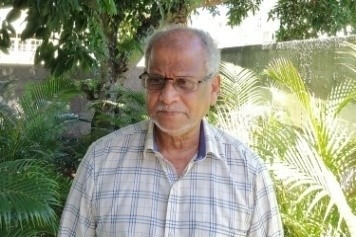In fact, Islam stands for absolute unity of the ummah. Unfortunately after the disintegration of the Muslim empire, a mushroom growth of petty states came into being. On the other hand, the western philosophy based on the concept of nationalism and nation-states consolidated this disintegration tremendously. The Muslim empire which had succeeded to bring the whole ummah under one umbrella at the outset shattered and lost the spirit of unity which was an exemplary one in the world.
There are many definitions of nationalism but according to Ramsay Muir, “A nation is as a body of people who feel themselves to be naturally linked together by certain affinities, which are so strong and real for them that they can live happily together, are dissatisfied when disunited and cannot tolerate subjection to people who do not share the ties.”
With the emergence of Communism, many satellite countries came under the sway of the Soviet Union. Under a strong centralized system, these states were at the mercy of the communist party. Dictatorship of the proletariat was simply a theory. Planned economy drifted the Soviet Union in the abyss of chaos. Because of state interference in the factor of production and in the service, the economy got a setback. Eventually, independence was granted to the fifteen countries which had made up the Soviet Union
What about Islam? Are nation-states in the advantage of the ummah ? Actually, Islam sets forth unity and in this context, the Holy Prophet [pbuh] says, “The parable of the believers in their affection, mercy and compassion for each other is that of a body. When any limb aches, the whole body reacts with sleeplessness and fever”. In fact, Islam encourages the ummah to live in different countries under the control of a caliph. Unfortunately, the institution of caliphate, a strong sunnah of the Prophet, has been destroyed.
Hazrat Ummar succeeded in establishing an ideal society where the ummah at large felt secured and happy. In the same context, people in Ethiopia refused to take zakaat because they were better off in that golden age. The empire was rather divided into provinces and was under the control of a governor and the latter was accountable to the caliph.
Today, if the Muslims would live in an Islamic empire, definitely they would not have to face humiliation, racial discrimination and Islamophobia. Living as minority in different parts of the world makes life difficult for the Muslims. Today, the Jews who suffered in the Holocaust evidently feel secured in Israel.
Unlike the Soviet Union, the Muslim dominions would enjoy mixed economies and free enterprises and could transfer goods and resources to less fortunate provinces. Complete religious freedom would prevail without any pressure, as is the case with hijab, vandalism and Islamophobia today in European countries and India. It would be the responsibility of the God-fearing caliph to relieve the poor from the cycle of poverty. Islam does not ban capitalism but the haves must pay the haves-not before their sweat is dried. The payment of zakaat and sadaka by the rich would underpin the poor to some extent. The output of some factories would be the input of other factories located in other parts of the empire.
Nationhood clashes among Muslim countries and the greed to hold absolute power have proved to be disastrous for the people living in those countries. They have to flee their countries. Civil war, military coup, poverty, political repression, the rise of fundamentalism, all in all, contribute to force the Muslims to seek refuge in foreign countries. According to a hadith, if a ruler fails to rule fairly over his people, he would be deprived of the scent of paradise. Wealth, fame and power have an edge over their conscience. ‘Absolute power corrupts absolutely’ : unfortunately, this is the situation in many Muslim countries. The hapless ummah is embarking upon perilous ventures at the cost of their lives. How many people have drowned in the Mediterranean Sea while in quest of a better life abroad?
After the demise of the Holy Prophet [pbuh], an unprecedented expansion of Islam took place. After the reign of the four rightly-guided caliphs, the Ummayad followed the same policy and kept the ummah united. The largest empire of the world was under strict control by rulers like Muawiyah, Abdul Malik, Alwalid, Ummar 2 and Hisham. Under the Abassid, the same policy was followed for a century by As-Safah, Harun Rashid, Al Mansur Al Mamoun and others. Since the Abassid dynasty lasted for five centuries, it faltered and became weak. Many countries and provinces parted way with the centre and by and large, there came the complete disintegration of the Muslim empire. From the 13th to the 20th century, the Ottoman ruled but failed to unite the ummah. Are the Muslim rulers feigning to sleep or are they perfectly conscious about the tribulations of the Muslims living as minorities in other parts of the world? Will the Mehdi succeed to unite the scattered ummah again?
Cassam Tupsy
NOTE : Les points de vue exprimés dans cette rubrique ne reflètent pas nécessairement ceux de la rédaction et n’engagent que les auteurs eux-mêmes.



![[Khutbah – La réflexion du Vendredi] Gaza : Le piège de l’oubli ou la stratégie de la diversion](https://sundaytimesmauritius.com/wp-content/uploads/2025/06/gaza-netzarim-corridor-humanitaire-218x150.jpg)



![[Yoga] A shared legacy, a shared future](https://sundaytimesmauritius.com/wp-content/uploads/2025/06/Yoga-Article-HC-218x150.jpg)
![[Khutbah – La Réflexion du Vendredi] Tawakkul, la confiance absolue en Allah (swt)](https://sundaytimesmauritius.com/wp-content/uploads/2025/06/Tawakkul-218x150.jpg)
![[Conseillers du MSM] Cumul de postes sur les boards : Un système lucratif d’enrichissement personnel](https://sundaytimesmauritius.com/wp-content/uploads/2025/06/pic-2-150x150.jpg)
![[National Agency for Drug Control] Sam Lauthan : « C’est tous ensemble qu’on vaincra la mafia »](https://sundaytimesmauritius.com/wp-content/uploads/2025/06/WhatsApp-Image-2023-02-16-at-4.22.48-PM-e1738665704593-150x150.jpeg)
![[OMCA Foundation] Un dîner de gala pour soutenir l’accès aux soins des plus démunis](https://sundaytimesmauritius.com/wp-content/uploads/2025/06/f960dc68-ed3e-4619-ae8e-dd8f374d07c4-150x150.jpg)

![[Conseillers du MSM] Cumul de postes sur les boards : Un système lucratif d’enrichissement personnel](https://sundaytimesmauritius.com/wp-content/uploads/2025/06/pic-2-100x70.jpg)
![[National Agency for Drug Control] Sam Lauthan : « C’est tous ensemble qu’on vaincra la mafia »](https://sundaytimesmauritius.com/wp-content/uploads/2025/06/WhatsApp-Image-2023-02-16-at-4.22.48-PM-e1738665704593-100x70.jpeg)
![[OMCA Foundation] Un dîner de gala pour soutenir l’accès aux soins des plus démunis](https://sundaytimesmauritius.com/wp-content/uploads/2025/06/f960dc68-ed3e-4619-ae8e-dd8f374d07c4-100x70.jpg)